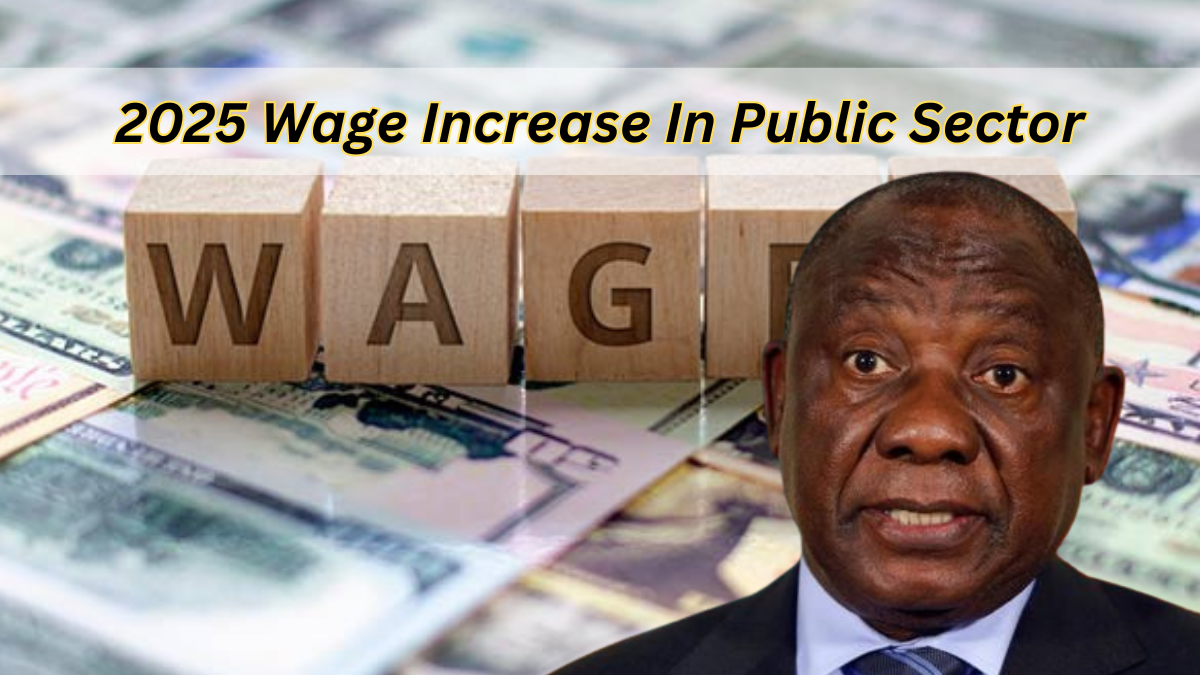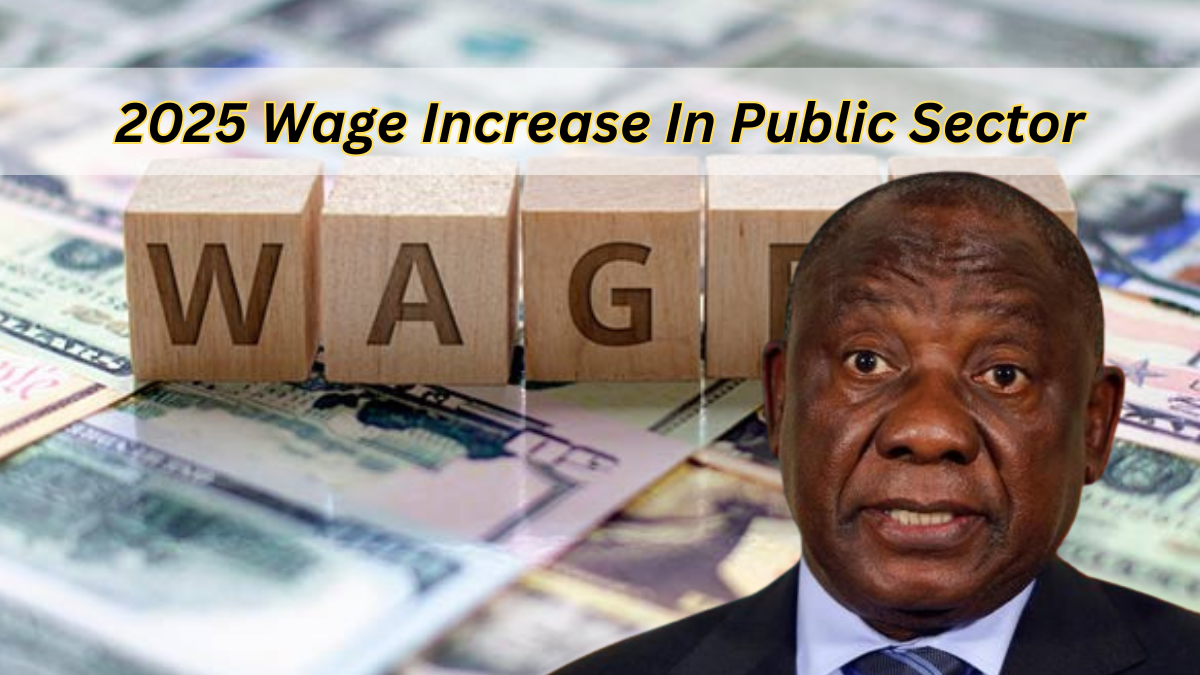The 2025 wage increase in South Africa brings much-needed financial relief to workers across various sectors. Employees in the public sector will receive a 5.5% salary increase, while the national minimum wage is set to rise to R28.50 per hour. This adjustment aims to counteract inflation, improve working conditions, and ensure fair compensation across industries.

This article provides comprehensive information on who will benefit, implementation timelines, eligibility criteria, and the economic impact of these wage hikes.
Summary of South Africa’s 2025 Wage Increase
| Aspect | Details |
|---|---|
| Wage Increase Percentage | Public sector: 5.5%, private sector varies |
| National Minimum Wage | Expected to rise to R28.50 per hour |
| Eligibility Criteria | Public/private sector workers, contract workers |
| Effective Date | March 1, 2025 |
| Additional Benefits | Housing & transport allowances, inflation-linked adjustments |
| Government Website | South African Government |
Who Will Benefit from the 2025 Wage Increase?
The wage increase covers multiple sectors. However, eligibility depends on several factors, including employment type and industry regulations.
1. Public Sector Employees
Public sector workers such as teachers, healthcare professionals, law enforcement officers, and administrative personnel will see a 5.5% salary increase across all pay grades.
Eligibility Criteria:
- Must be employed by the national or provincial government.
- Includes permanent, contract, and part-time employees.
- Housing and transport allowances will also be adjusted accordingly.
Implementation Timeline:
- New wage structures will be effective April 1, 2025, reflected in April paychecks.
- Housing and transport allowance updates will be implemented by July 2025.
2. Private Sector Workers
Private sector companies in mining, retail, manufacturing, and services are expected to adjust salaries according to union agreements and minimum wage laws.
Key Highlights:
- Some employers, like Sibanye Stillwater, have committed to a 5.5% increase for artisans and officials.
- Lower-tier employees will receive an R900 monthly raise.
Implementation Timeline:
- Changes expected between March and June 2025.
- Employers must adjust wages in compliance with sectoral determinations.
3. Minimum Wage Earners
The National Minimum Wage (NMW) will increase from R27.58 per hour to approximately R28.50 per hour.
Workers Affected:
- Domestic workers
- Farmworkers
- Entry-level retail and hospitality employees
Implementation Timeline:
- The new rate will be effective from March 1, 2025.
- Employers failing to comply may face penalties.
Expected Wage Increase in the Public Sector
Public servants are the primary beneficiaries of the wage hike. The Government has linked increases to inflation rates, ensuring competitive salaries to retain skilled professionals.
Government employees, including:
- Police officers
- Nurses
- Teachers
- Administrative staff
will all benefit from salary adjustments aimed at improving service delivery.
Economic Impact of the Wage Increase
1. Higher Earnings for Employees
- Public sector employees will see an increase of approximately 4.4% in real income.
- Minimum wage earners will benefit from higher disposable income.
2. Improved Job Satisfaction
- Higher wages may lead to increased job satisfaction and productivity.
- Retaining skilled professionals in public services becomes easier.
3. Increased Costs for Employers
- Employers must adjust budgets to accommodate higher salaries.
- Businesses must ensure compliance to avoid penalties and labor disputes.
4. Boost in Consumer Spending
- With more disposable income, workers can spend more on goods and services.
- This contributes to economic growth and business expansion.
How to Ensure Compliance with Wage Adjustments
To avoid penalties, both public and private sector employers should:
- Review wage structures to meet minimum wage laws.
- Adjust employment contracts to reflect new salaries.
- Implement wage changes on time to prevent labor disputes.
- Communicate with employees about salary increases and additional benefits.
For official guidance, visit the South African Government website.
Frequently Asked Questions (FAQs)
1. When will the wage increase take effect?
- The wage hike will be implemented from March 1, 2025.
- Public sector salary increases will be reflected in April 2025 paychecks.
2. What is the new national minimum wage?
- The national minimum wage is expected to rise to R28.50 per hour.
3. Who qualifies for the 5.5% wage increase?
- Public sector employees including teachers, nurses, law enforcement officers, and administrative workers.
- Private sector workers may receive industry-specific increases.
4. How will the wage increase impact inflation?
- The government aims to align wage increases with inflation.
- Consumer spending is expected to rise, stimulating the economy.
5. How can employees verify their wage increase?
- Check payslips for the updated salary amount.
- Consult HR departments for confirmation.
- Visit the Department of Labour for official wage guidelines.
The 2025 public sector wage increase is a significant financial boost for South African workers. Whether you are a public servant, private sector employee, or minimum wage earner, staying informed about wage adjustments is essential.
The 5.5% salary increase and minimum wage rise to R28.50 per hour will help workers manage the rising cost of living while boosting the country’s economic growth.
For official updates and compliance guidelines, visit the South African Government website.
For More Information Click Here
